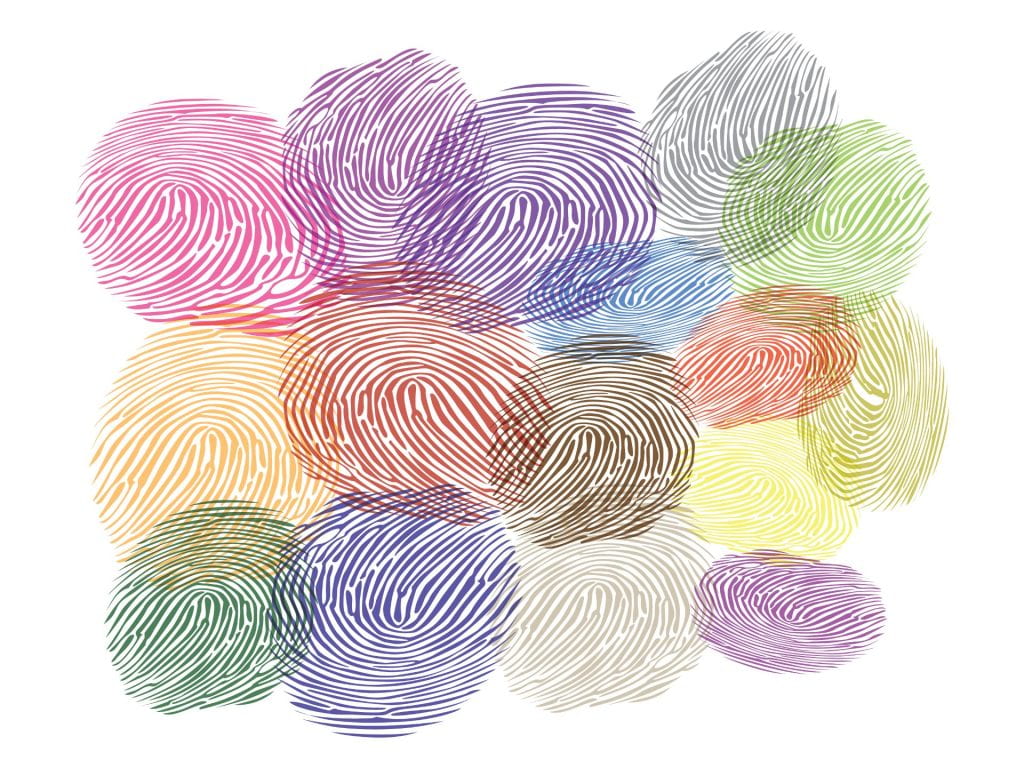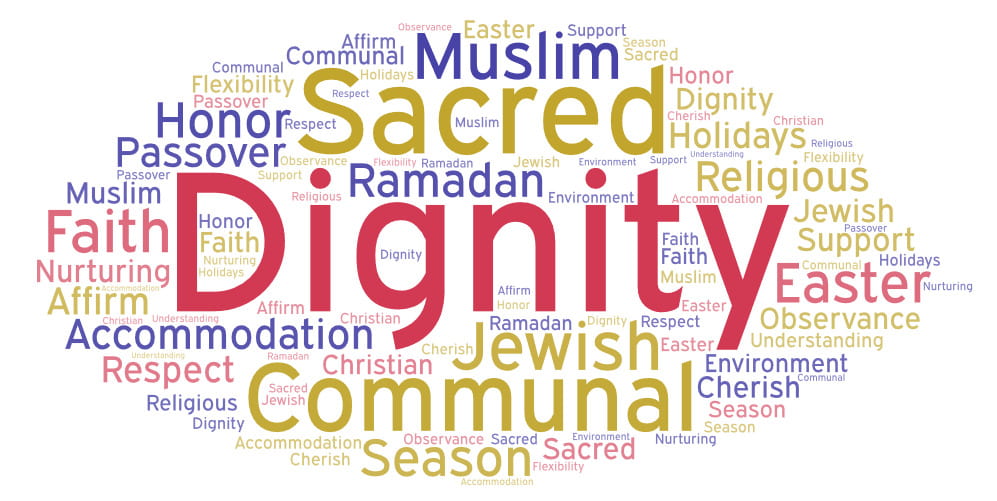Written By: Kayla Schneider-Smith, Assistant Director, Religious Diversity and Pastoral Care, Chaplain for Jewish and Interfaith Life

The holiday of Passover is all about telling stories. In fact, the book that Jews read from each year during the Passover seder is called the Haggadah in Hebrew, which translates as “the telling,” or “the story.” The Haggadah not only recounts the biblical narrative of the Israelites’ exodus from over four hundred years of slavery in Egypt, but it also reminds us that “in every generation one is obligated to see oneself as one who personally went out from Egypt.” [1]
In other words, we can’t just tell the stories of our ancestors—we must also listen deeply, empathize, and reflect on our own stories of personal, communal, and spiritual liberation.
The biblical word for Egypt is Mizrayim, which means “straits,” or “narrow places.” For many Jews celebrating Passover today, these narrow places are often viewed metaphorically: where are we limited, and from what do we wish to be liberated?
When we think of metaphorical narrow places in our lives, we unfortunately won’t be hard-pressed to find them—in ourselves, in our DePaul community, in our nation, and throughout our world. I think specifically about the painful polarization that has made it nearly impossible to engage with people who hold viewpoints different from our own, no matter how many dialogue initiatives we attempt.
In her 2009 essay and TED Talk, “The Danger of a Single Story,” Nigerian writer Chimamanda Ngozi Adichie warns about the stereotypes, assumptions, and “single stories” we hold of others. In her case, she recalls that when she first came to the United States for college, her American roommate assumed she didn’t speak English or know how to use a stove. Many people she encountered had a single, often false story of what it meant to be African. And Adichie, too, admits that she held dangerous assumptions of other populations. She writes, “The single story creates stereotypes. And the problem with stereotypes is not that they are untrue, but that they are incomplete. They make one story become the only story.” [2]
Take the story of Passover, for example. When Pharoah orders the murder of all first-born Hebrew sons, a reader could easily assume that all Egyptians were oppressors, and all Hebrews were oppressed. But that story is incomplete. Why? Because there were Egyptians that risked their lives to deceive Pharoah and let Hebrew babies live, like the famous midwives Shifrah and Puah, [3] or Pharoah’s daughter, who drew baby Moses from the water to save him, knowing full well that he was a Hebrew. [4]
Adichie asserts, “The consequence of the single story is this: It robs people of dignity. It makes our recognition of our equal humanity difficult. It emphasizes how we are different rather than how we are similar.” [5]
Just two weeks ago our DePaul Religious Diversity and Pastoral Care team led a group of twenty students on a Spring Break Interfaith Immersion Day. We visited a Baha’i temple, had lunch in DePaul’s Jewish Life Center, volunteered at Marillac St. Vincent, and toured IMAN, the Inner-City Muslim Action Network. Students and leaders on our trip shared their faith journeys in many ways that challenged stereotypes and “single stories”:
One student pointed out that though many assumed she had always been observant, she had only just started wearing a hijab.
Another student from Kyrgyzstan, a predominately Muslim country, surprised us when she explained that her dad deeply values the Jewish community and had sent her younger sisters to study at a Jewish school in their city.
Our docent at the Baha’i House of Worship shared that he considers himself both Hindu and Baha’i at the same time.
And our guide from IMAN described how he had transitioned from gang involvement to a sense of meaning and purpose in his conversion to Islam.
Adichie writes: “Stories matter. Many stories matter. Stories have been used to dispossess and to malign. But stories can also be used to empower, and to humanize. Stories can break the dignity of a people. But stories can also repair that broken dignity.” Saint Vincent de Paul even echoed this sentiment and the words of the Torah, saying: “I have to love my neighbor as the image of God and the object of His love.” [6]
As we conclude Ramadan, gear up for Easter, and prepare for Passover this spring, may we begin to traverse from our narrow places into nuance. May we find dignity in our shared humanness and repair the dignity of others we may have judged too soon, remembering that we are all created B’tzelem Elohim, in the image of God. [7] And may we find joy in the gift of that renewed perspective.
——————–
Please join us on Thursday, April 17th for our first ever DePaul Jewish Life Passover Bazaar! Featuring Judaica, macaroons, chocolate-covered matzah, 10-plagues-themed arts and crafts, and “The Prince of Egypt” movie screening in the Lincoln Park Student Center Atrium. All are welcome.
A Zissen Pesach (A Sweet Passover) to All!
Reflection by: Kayla Schneider-Smith, Assistant Director, Religious Diversity and Pastoral Care, Chaplain for Jewish and Interfaith Life
[1] Mishnah Pesachim 10:5, interpreting Exodus 13:8.
[2] Chimamanda Ngozi Adichie, “The Danger of a Single Story,” TED Talk, TED Talk Global, July 2009. 12 min, 49 sec. https://www.ted.com/talks/chimamanda_ngozi_adichie_the_danger_of_a_single_story?language=en. It should be noted that Adichie did face controversy in 2017 over comments she made about transgender women. Following this, she clarified her remarks and reiterated her support for trans rights.
[3] Exodus 1:15–2.
[4] Exodus 2:5–10.
[5] Adichie, “Danger of a Single Story,” 13 min., 36 sec.
[6] Conference 207, “Charity (Common Rules, Chap. 2, Art. 12),” May 30, 1659, CCD, 12:215. Available online at: https://via.library.depaul.edu/vincentian_ebooks/36/.
[7] Genesis 1:27.

